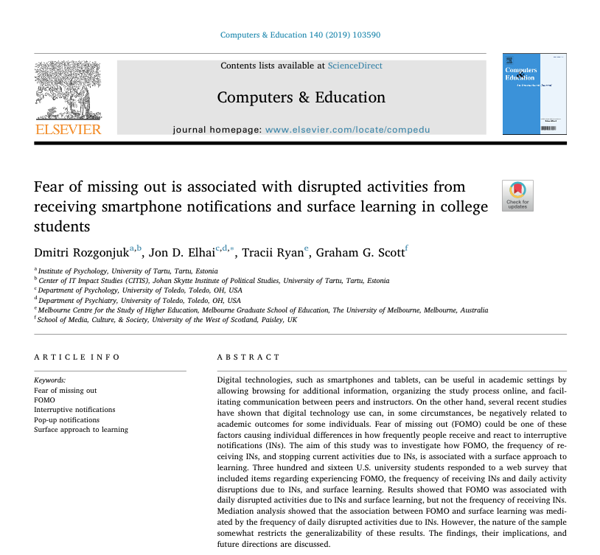Fear of missing out is associated with disrupted activities from receiving smartphone notifications and surface learning in college students
Digital technologies, such as smartphones and tablets, can be useful in academic settings by allowing browsing for additional information, organizing the study process online, and facilitating communication between peers and instructors. On the other hand, several recent studies have shown that digital technology use can, in some circumstances, be negatively related to academic outcomes for some individuals. Fear of missing out (FOMO) could be one of these factors causing individual differences in how frequently people receive and react to interruptive notifications (INs). The aim of this study was to investigate how FOMO, the frequency of receiving INs, and stopping current activities due to INs, is associated with a surface approach to learning.
Three hundred and sixteen U.S. university students responded to a web survey that included items regarding experiencing FOMO, the frequency of receiving INs and daily activity disruptions due to INs, and surface learning. Results showed that FOMO was associated with daily disrupted activities due to INs and surface learning, but not the frequency of receiving INs. Mediation analysis showed that the association between FOMO and surface learning was mediated by the frequency of daily disrupted activities due to INs. However, the nature of the sample somewhat restricts the generalizability of these results. The findings, their implications, and future directions are discussed.


Add a comment